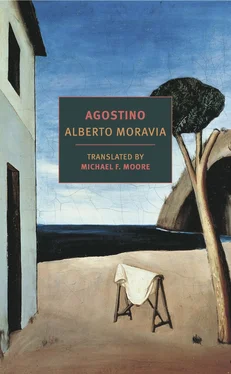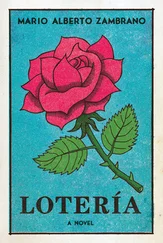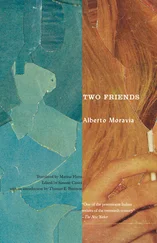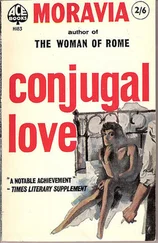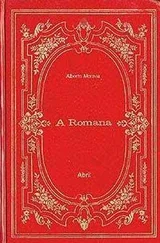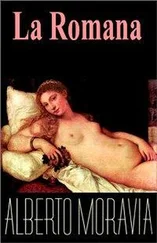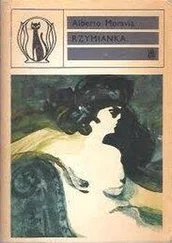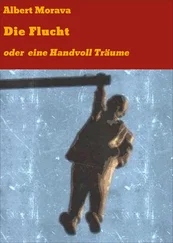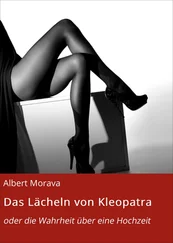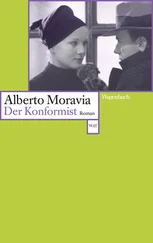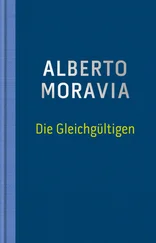“Handsome like his mother,” the young man replied. The mother laughed pathetically at this simple compliment. Agitated and filled with embarrassment, Agostino started to pull away. “Now go wash up,” the mother told him, “and don’t take all day. We’re having dinner soon.” Agostino said goodbye to the young man and left the room. From behind him, the musical notes resumed immediately, picking up where they had been interrupted by his entrance.
Once he was in the hall, he stopped and lingered to listen to the sounds the mother’s fingers were releasing from the keyboard. The hall was dark and stuffy. At one end you could see, through the open door, the illuminated kitchen and the cook dressed in white busying herself slowly between the table and the stove. In the meantime the mother was playing, and to Agostino the music sounded lively, tumultuous, sparkling, in every way similar to the expression in her eyes when she was holding him close to her side. Maybe it was the type of music, or maybe again it was the mother adding the tumult, the sparkle, and the liveliness. The whole house echoed with it, and Agostino found himself wondering whether outside in the street there might be clusters of people stopping to listen in amazement to the scandalous indiscretion resounding in each of those notes.
Then, all at once, midway through a chord, the sounds came to a stop. Agostino had a dark certainty that the force ringing through the music had suddenly found a more appropriate outlet. He took two steps back and set foot on the threshold of the living room.
What he saw did not greatly surprise him. The young man was standing up and kissing the woman on the mouth. Bent over backward on the low, narrow piano stool, which her body overflowed on every side, she still had one hand on the keyboard and the other wrapped around the young man’s neck. In the dim light you could see her body twisted back, her palpitating breast exposed, one leg bent and the other extended to touch the pedal. In contrast to her violent devotion, the young man seemed to maintain his customary distance and composure. From his upright position, he had one arm under the woman’s neck, more out of fear that she would fall, you might say, than out of violent passion. The other arm dangled to his side, the hand still holding a cigarette. His legs were clothed in white, sturdy and open, one on either side of her, expressing both self-possession and determination.
The kiss was long, and it seemed to Agostino that every time the young man wanted to break away, the mother would begin again with unsated greed. The truth was, he could not help thinking, she seemed starved for that kiss, like someone who has gone without for too long. Then, in a movement she made with her hand, one, two, three low and sweet notes were played in the living room. Instantly the two of them broke apart. Agostino took a step into the living room and said, “Mamma.”
The young man turned around quickly and went to position himself, hands in his pockets, legs spread wide, by the window, as if he had been absorbed in looking out at the street. “Agostino,” the mother said.
Agostino walked toward her. She was breathing with such violence he could clearly see her breasts rise and fall beneath the silk fabric of her dress. Her eyes were shining even more brightly than before. Her mouth was half open and her hair in disarray. A soft, pointed lock of hair, alive as a snake, cascaded down her cheek. “What is it, Agostino?” she repeated in a hoarse low voice, fixing her hair as best she could.
Agostino suddenly felt pity mixed with repulsion pressing down on his heart. “Get a hold of yourself,” he wanted to shout at the mother, “calm down. Don’t breathe like that. Then you can speak to me, but don’t speak to me in that voice.” Instead, quickly and almost deliberately exaggerating his childish voice and eagerness, he asked, “Mamma, can I break my piggy bank? I want to buy a book.”
“Of course you can, dear,” she said, and she reached out a hand as if to pat him on the forehead. As soon as her hand touched him, Agostino could not help but recoil, slightly and almost imperceptibly, but enough for it to seem violent and very noticeable to him. “OK, so I’ll go ahead and break it,” he repeated. And walking away quickly, without awaiting her reply, he left the room.
Running up steps that were squeaky with sand, he went to his room. The idea of the piggy bank hadn’t been an excuse. He really hadn’t known what to say at the sight of his overwrought mother. The piggy bank was on the desk at the far end of the dark room. Light from the streetlamp entered through the open window, illuminating its pink belly and wide black smile. Agostino switched on the light, grabbed the piggy bank, and with an almost hysterical violence threw it on the floor. The piggy bank broke and through a wide crack spewed a pile of coins of every type. Strewn in with the coins were several small bills. Squatting on the ground, Agostino counted the money in a fury. His fingers trembled, and although he was counting he couldn’t help but see, mixed in with the coins scattered on the floor, the superimposed image of the two people in the living room, the mother tilted back on the stool and the young man leaning over her. He counted and sometimes he had to start over because of the confusion the image wrought in his mind. Once he had finished counting the money, he found he still didn’t have the amount he required.
He wondered what he should do, and for a moment he thought of stealing the money from the mother. He knew where she kept it. Nothing would be easier, but the idea repelled him and he finally decided simply to ask her. What excuse should he use? Suddenly he thought he had found one. At the same time he heard the dinner bell tinkle. He quickly put his treasure in a drawer and went downstairs.
The mother was already seated at the dinner table. The window was open and from the courtyard big hairy brown moths came in and fluttered their wings against the white glass lampshade. The young man was gone, and the mother had regained her customary serene dignity. Agostino looked at her and once again, like the first time she had gone out to sea with the young boatman, he was surprised not to see on her mouth any trace of the kiss that just a few minutes earlier had pressed her lips together and then separated them. He couldn’t say what he was feeling. A sense of compassion for his mother, to whom that kiss must have felt precious and overwhelming. And at the same time, a strong repulsion not at what he had seen but rather at the memory it had left. He would have preferred to reject the memory, to forget it. How could something so disturbing, so radical, enter through his eyes? He had a premonition the image would be impressed on his memory forever.
After they had finished eating, the mother stood up and went upstairs. Agostino thought the moment had come— it was now or never — to ask her for the money. He followed her and entered the bedroom behind her. She was sitting in front of the mirror at the vanity table and studying her face in silence.
“Mamma,” said Agostino.
“What is it?” she asked absentmindedly.
“May I have twenty lire?” That was the amount he still needed.
“What for?”
“To buy a book.”
“But didn’t you say,” she asked, slowly passing the powder puff over her face, “that you wanted to break your piggy bank?”
Agostino uttered a childish sentence. “Yes, but if I break it, then I won’t have any money saved up. I want to buy the book without breaking the piggy bank.”
The mother laughed affectionately. “You’re such a child.” She looked at him in the mirror for a moment, then added, “In my bag… on the bed, my change purse must be inside… you can take twenty lire and then put the purse back inside my bag.”
Читать дальше
